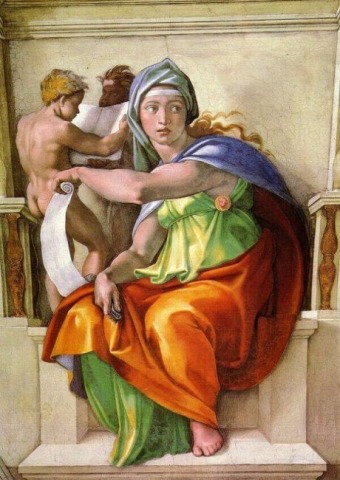
The author of a book on why most kids don’t need to go to college was on television explaining that “most students don't need things like liberal arts or gender studies.”
There he lost me.
You wouldn’t think so. For in the first place, I don’t think the majority of kids need to go to college either – and I’d say so even if it were less expensive. They aren’t interested, they don’t get it, and they are too young to benefit from the experience; fruits picked too soon don’t ripen, but only spoil. Youth is for planting roots, getting married, and starting families. Let them grow up a little, and then, perhaps, come back. Some of my best students have been older, returning students.
And nobody needs gender studies. It’s not a scholarly discipline, but an ideology. You can get all that and save the tuition by reading Twitter.
But as to the liberal arts.
The author was assuming that the only purpose of studying something is its usefulness, in this case, for getting a job. I’m all for getting a job, and I’m all for learning what you need to know to get one – in college, if that’s the only place you can learn it. But the purpose of the liberal arts isn’t that they’re useful. It’s that they’re useless.
By which I mean: They aren’t a means to some other end, but are worthwhile in themselves. Skill in accountancy is admirable and important, but you don’t read Dante’s Comedy to be better at accountancy. You do it for its own sake. It enriches your life.
Therein lies the difference between a slave and a free man. The free man has the privilege of doing at least some things for their own sake. The slave does nothing for its own sake. He does everything as a means to other ends.
In fact, that’s how the liberal arts got their name. It comes from the Latin word liber, which means “free.” The things we do because they are civilized, worthwhile in themselves, fit uses of the powers that make us human -- those are the liberal arts.
The things we do just to keep meat on our bones, serve our masters, escape their notice, or pump up the Gross National Product -- those, however important, are the servile arts.
Though it isn’t often recognized, even some chattel slaves can be free in the sense I have in mind, because everything we do for sheer love is free rather than servile. The friendship of sharing in a good life is free. Cherishing our children is free. Worshipping for the sheer love of God is the freest of all. My masters may be more truly enslaved without bonds than I am in bonds, because they are in bondage to their appetites. St. Paul urges bondservants to find freedom by doing whatever they must do as though they were doing it for Christ.
Yet even Paul does not think shoveling dung is free in itself, and he tells them “if you can gain your freedom, avail yourself of the opportunity.”
One of the blessings of modern Western life is that today, we do not have bond slavery, and those who must work for a living (that’s almost all of us) have greater scope for free pursuits too. We can choose our own spouses, raise children without fear that they will be sold away from us, and worship God as our hearts direct. We also have more time. A nurse can sing in a scholum, a welder can practice contemplation, and yes, that accountant can read Dante.
One of the disappointments of modern life is that we twitter and fritter this blessing away, filling up our time with meaningless things, imagining that we are free because we fasten our own fetters.
And one of the banes of modern life is that colleges of liberal arts are among the chief fritterers.
I grant that they are industrious fritterers. They snag big budgets, crank out publications, hoodwink donors, propagandize legions of students, pull in impressive grants, flatter those whose approval they crave, and wage endless battles for honor and preeminence – yes, they excel at the servile arts. But they have less and less to do with the liberal arts.
That brings me back to the fellow on television. I don’t agree with him that unless you want a job in the liberal arts, you don’t “need” the liberal arts. That misses the point. Their worth doesn’t lie in their usefulness; their point doesn’t lie in a job. If we think that only the useful has value, we are slaves.
But if he were to say that fewer and fewer students who major in the liberal arts are learning about liberal pursuits – why, of course he would be right.
If there is to be a rebirth of the liberal arts, it may have to take place entirely outside of the universities.
Perhaps then there might be a rebirth of the universities.